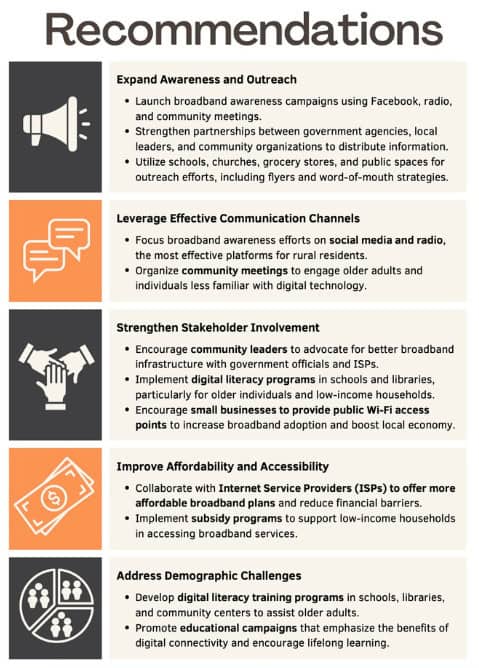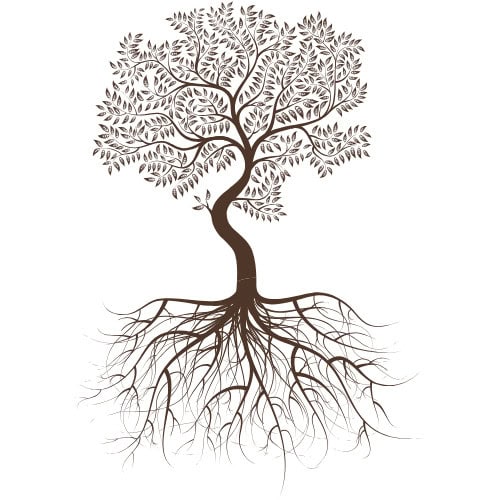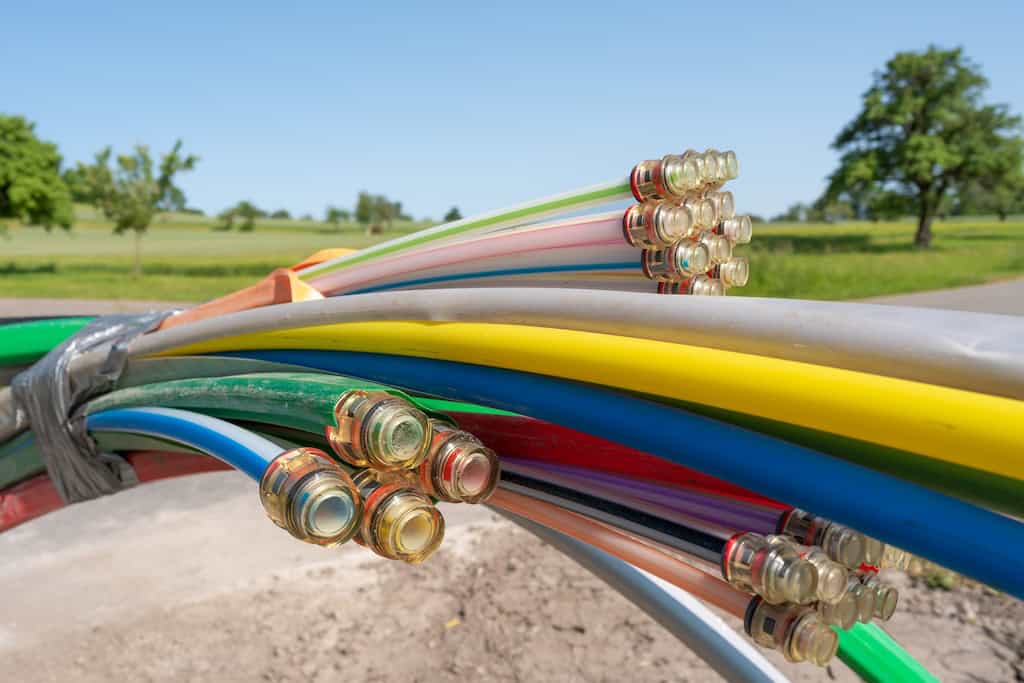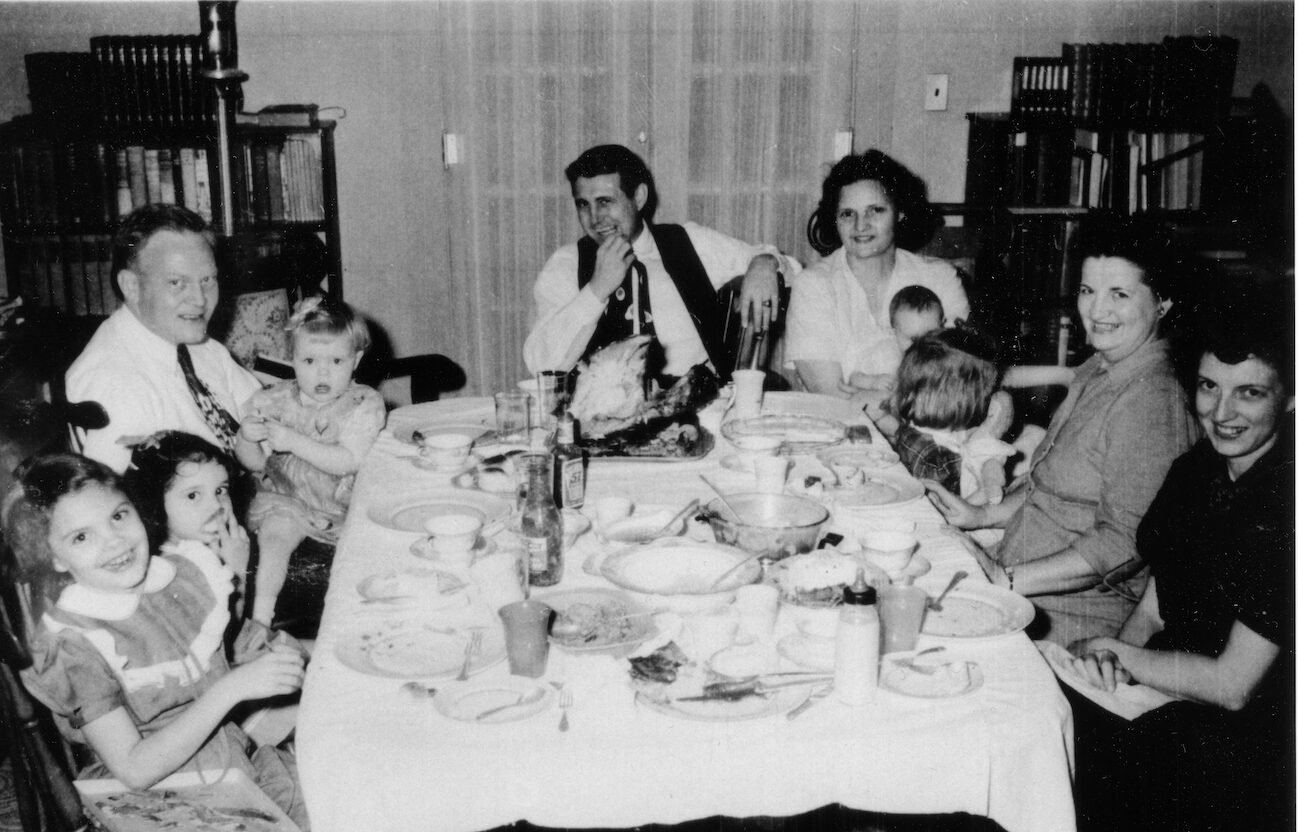Editor’s Note: Arkansas Strong would like to thank Afolabi Salami for his work on this project. Click here to read his full report. Click here for Bridging the Arkansas Digital Divide summary.
Broadband is no longer a luxury, it’s a necessity. Expanding rural broadband access can unlock economic growth, educational opportunity, and a better future for every Arkansan.
Written by Afolabi Salami
For the past eight years, my professional journey has been deeply rooted in working with marginalized households and communities. My focus has always been on fostering economic inclusion, designing, and implementing initiatives that empower vulnerable populations, particularly those at the bottom of the economic pyramid, with the tools and opportunities to seize economic power and live a decent life. This commitment to inclusivity and community prosperity has been the driving force behind my work.
Passion Meets Purpose
When I joined the Master of Public Service program at the Clinton School, what stood out to me was its distinctive emphasis on real-world impact. Beyond academic learning, the program offered students the unique opportunity to collaborate with mission-driven organizations to tackle pressing societal issues through a capstone project. To facilitate this, the Clinton School organized a Capstone Fair, bringing together a diverse range of organizations seeking student partners.
At the fair, I had a chance meeting with Arkansas Strong. After learning details of the project, an initiative focused on bridging the digital divide in rural Arkansas, I was immediately drawn in. The project’s objectives perfectly aligned with my passion and professional experience. It felt less like an assignment and more like a natural extension of the work I had been doing for years. For me, this was passion meeting purpose.
A few weeks later, I received an email expressing Arkansas Strong’s interest in working with me. I requested the project’s scope of work, and once I reviewed it, my interest deepened even further.
The project had two main components:
- identifying best practices
- conducting a comprehensive needs assessment for broadband access in rural Arkansas.
If left unaddressed, the digital divide will continue to widen socioeconomic disparities, leaving rural Arkansans further isolated from critical services and opportunities.
Both were critical, and both spoke to my strengths. In September 2024, I officially began working on the project. What followed was not just a capstone experience, but a deeply fulfilling journey of learning, collaboration, and impact, one that allowed me to apply my passion for economic inclusion to a new context while making tangible contributions to the state of Arkansas.

Why Rural Arkansas Lags Behind
In rural Arkansas, the lack of reliable, affordable broadband is more than an inconvenience, it’s a barrier to opportunity. Despite state and federal programs aiming to close this gap, many communities remain disconnected. Limited by infrastructure challenges, affordability issues, and digital literacy gaps, critically, there is a lack of awareness about available support.

For many Arkansans, especially older adults, low-income families, and those with less formal education, broadband feels out of reach. These groups are often the hardest hit, excluded not by choice but by circumstances. While programs like the Affordable Connectivity Program (ACP) and the Broadband Equity, Access, and Deployment (BEAD) initiative offer real solutions, too few people in rural areas know they exist or understand how to benefit from them.
Bridging the digital divide is essential for rural Arkansas to thrive in today’s digital economy.
Local leaders, schools, and small businesses stand ready to help but face their own challenges including limited resources, fragmented efforts, and a lack of coordination. Yet, it is within these very communities that the most effective solutions can be found. What’s needed is a more structured, collaborative approach that brings together stakeholders and empowers residents with the information, skills, and tools to succeed in a digital world.

A Path Forward: Community-First Solutions
Improving broadband access in rural Arkansas is not just about laying more fiber. It’s about making sure families can afford internet service, feel confident using it, and trust that it’s safe. It’s about creating programs that meet people where they are, through familiar community spaces like churches, schools, and local events. It’s about teaching practical digital skills and ensuring that every household has the devices they need.

To truly bridge the digital divide, policymakers and service providers must look at a community-first strategy, rooted in local partnerships, targeted outreach, and data-informed policies to ensure that broadband becomes a driver of economic growth, better healthcare access, improved education, and stronger communities.
However, this isn’t just a job for policymakers. Every rural Arkansan has a role to play. We all need to start by having conversations with neighbors, local officials, and community groups about broadband needs. Share our own experiences on how lack of internet affects our family, our work, or our children’s education. Attend town halls, write to our state legislators, and ask what’s being done to prioritize broadband expansion in our area. Get involved with local efforts. Schools, libraries, and churches can also be powerful hubs for digital inclusion and helping spread the word about programs like ACP. Small, community-led actions can build into a powerful movement.


The message is simple: Broadband is no longer a luxury, it’s a necessity. Every rural Arkansan deserves equal access to the opportunities it unlocks. By organizing locally, raising awareness, and working together, communities can ensure their voices are heard and drive the change they need.
Bridging the digital divide is essential for rural Arkansas to thrive in today’s digital economy. Beyond mere connectivity, broadband access influences education, healthcare, job opportunities, and overall community wellbeing. Sustainable progress requires an integrated, community-driven approach where infrastructure, affordability, skills, and awareness go hand-in-hand.
If left unaddressed, the digital divide will continue to widen socioeconomic disparities, leaving rural Arkansans further isolated from critical services and opportunities. However, with intentional collaboration and targeted interventions, rural communities can unlock transformative benefits from broadband access.
Read my full report.


Afolabi Salami has a strong passion for advancing economic inclusion and empowering vulnerable communities. Originally from Lagos, Nigeria, he moved to Little Rock, Arkansas, in 2023 and recently earned a Master of Public Service from the University of Arkansas Clinton School of Public Service. Afolabi has spent the past several years designing and implementing initiatives that equip marginalized households with the tools to build economic resilience and seize opportunities for upward mobility. In Little Rock, he has collaborated with local organizations to support initiatives that create pathways for equitable growth and inclusive development.




